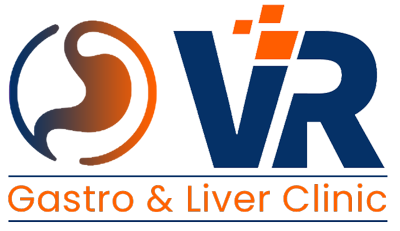Irritable Bowel Syndrome (IBS) is a common gastrointestinal disorder that affects the large intestine, leading to a range of uncomfortable symptoms. Although IBS is not life-threatening, it can significantly affect your quality of life if not properly managed. Understanding the symptoms, diagnostic methods, and treatment options can help you take control of this chronic condition.

What is IBS?
IBS is a functional bowel disorder, meaning there’s no structural abnormality, but the digestive system doesn’t work as it should. It is characterized by recurring abdominal pain, bloating, and changes in bowel habits such as diarrhea, constipation, or a mix of both.
Common Symptoms of IBS
- Abdominal pain or cramping, often relieved by a bowel movement
- Excessive gas or bloating
- Diarrhea (IBS-D), constipation (IBS-C), or alternating (IBS-M)
- Feeling of incomplete bowel movements
- Mucus in stool
These symptoms often worsen after eating or during periods of stress.
Causes and Risk Factors
While the exact cause of IBS is not fully understood, several factors are known to play a role:
- Abnormal muscle contractions in the intestine
- Nervous system sensitivity
- Severe infection or bacterial overgrowth in the gut
- Stress or mental health issues like anxiety and depression
- Family history of IBS
Diagnosis of IBS
Diagnosing IBS involves ruling out other medical conditions through a combination of medical history, physical examination, and tests. The Rome IV criteria are often used, which focus on recurring abdominal pain associated with defecation and changes in stool frequency or form over a period of time.
Tests may include:
- Blood tests to rule out infections or inflammation
- Stool tests to check for parasites or blood
- Colonoscopy, if necessary, especially for people over 45 or with alarming symptoms
Effective Management Strategies for IBS
There’s no one-size-fits-all cure for IBS, but symptoms can often be managed with lifestyle and dietary changes, medications, and stress reduction.
Dietary Modifications
- Adopting a low FODMAP diet (avoiding fermentable carbs)
- Eating smaller, more frequent meals
- Increasing fiber intake (for IBS-C), with caution
- Avoiding caffeine, alcohol, and spicy foods
Medications
- Antispasmodics to relieve cramping
- Laxatives or anti-diarrheal medications
- Probiotics to balance gut flora
- Antidepressants in low doses to help with pain and gut sensitivity
Stress Management
- Cognitive Behavioral Therapy (CBT)
- Yoga and mindfulness meditation
- Regular physical activity
When to See a Specialist?
If IBS symptoms persist despite home remedies and dietary changes, it’s important to consult a specialist. Early diagnosis and customized treatment can greatly improve your condition and quality of life.
Consult Dr. Veera Abhinav Chinta – Best Gastro Doctor in Vijayawada
Looking for expert guidance in managing IBS in Vijayawada? Dr. Veera Abhinav Chinta, a highly experienced gastroenterologist, specializes in diagnosing and treating all types of gastrointestinal conditions, including Irritable Bowel Syndrome.
With a patient-centric approach and advanced diagnostic tools, Dr. Abhinav Chinta offers comprehensive IBS management plans tailored to your individual needs. Whether you're dealing with persistent bloating, abdominal pain, or irregular bowel movements, you're in expert hands.
Book your consultation today with the best gastro doctor in Vijayawada and take the first step toward digestive health and wellness.
Irritable Bowel Syndrome can be a lifelong condition, but it doesn't have to control your life. With the right care and guidance, you can manage symptoms effectively and lead a normal, healthy life. If you're in Vijayawada and suffering from IBS, trust Dr. Veera Abhinav Chinta to help you regain control of your digestive health.
Articles
- Irritable Bowel Syndrome (IBS): Understanding Symptoms, Diagnosis, and Management Strategies
- Celiac Disease and Gluten Sensitivity: What You Need to Know
- Understanding Colonoscopies and Endoscopies: Why They're Important for Digestive Health
- Preventing Colon Cancer: Risk Factors, Screening, and Early Detection
- How Your Gut Health Affects Your Whole Body
- Gas Pain in Chest: Causes, Treatment, and More
- How junk food affects liver health
- The role of probiotics and prebiotics in gut health
- What is indigestion or dyspepsia?
- Why is hydration so important for liver health?
- What are the 5 symptoms of liver disease in women?
- What does alcohol do to your body?
